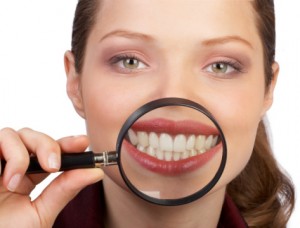 You know that fuzzy feeling on your teeth at the end of the day? Well, it’s not fuzz (phew!), it’s actually plaque (oh no!). What is plaque? It’s a sticky biofilm attached to your teeth containing hundreds of bacterial species. Before you run for the mouthwash, you should know those bacteria occur naturally. And it’s not just you, everyone has them!
You know that fuzzy feeling on your teeth at the end of the day? Well, it’s not fuzz (phew!), it’s actually plaque (oh no!). What is plaque? It’s a sticky biofilm attached to your teeth containing hundreds of bacterial species. Before you run for the mouthwash, you should know those bacteria occur naturally. And it’s not just you, everyone has them!
What Causes Plaque?
Those little germs on your teeth use ingredients in saliva to flourish, namely sugar. As the bacteria metabolize tiny sweet particles, they produce acids that erode tooth enamel, cause cavities, and lead to gum disease and tooth loss. A diet full of candy, soft drinks, and carbohydrate-rich foods ups the ante.
Lose the Plaque, Not Your Teeth!
Though the formation of plaque happens to us all, there are things you can do to prevent it from building up on your teeth and hardening into tartar.
- Brush thoroughly at least twice a day, but preferably after every meal.
- Floss once a day to remove leftover food particles and plaque between teeth.
- Chew sugarless gum in between brushing. When you chew, saliva is produced, which counteracts acid in the mouth.
- Limit your intake of sugary, starchy foods. Sticky snacks, like raisins, are especially problematic.
- Stop smoking! Do we really need to explain why? Besides the obvious reasons, smokers have more hardened plaque than non-smokers do.
- Visit your dentist every six months for a checkup and professional hygiene.
- Ask about dental sealants, a thin plastic coating that protects the chewing surfaces of your teeth from cavities and decay.
Some New News in Plaque Prevention
Recent research has pointed to some interesting (and yummy) ways you might be able to slow the production of plaque and acid-causing bacteria. The flavonoids in anti-oxidant rich cranberries may reduce the enzymes associated with plaque formation. Also at the forefront? The sugar substitute xylitol. Now found in gum and candy, xylitol prevents bacteria from sticking to teeth. Cool!
Comments are closed.